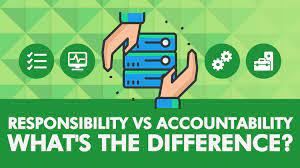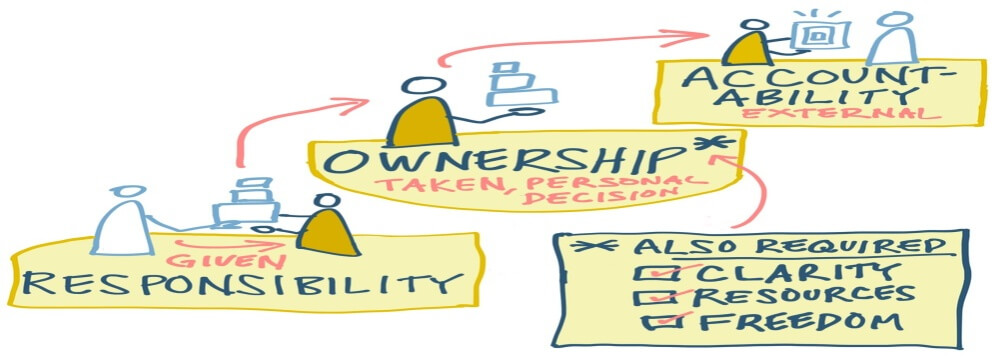Difference Between Accountability and ResponsibilityUnderstanding the importance of the distinctions between duty and accountability at work is crucial. While these ideas are closely linked and occasionally used interchangeably, there are several important distinctions you need to be aware of. Although these phrases often refer to administrative positions, they are crucial in every professional environment. In this post, we define responsibility and accountability, discuss how they vary, and advise on improving both.  What is Responsibility?Tasks and projects are related to responsibility. Doing the necessary responsibilities when you are in charge of anything would be best. The execution of a program or the management of a situation may include more than one individual sharing a duty. The performance of a certain job or set of activities is an example of a needed result, which is why responsibility is often linked to it. Also, because you cannot be compelled to accept or fulfill a duty, it is self-managed and must be chosen by you. What is Accountability?
 Advantages
Workplace Accountability and ResponsibilityTo diverse individuals, these two words have varied meanings. Everyone is affected by responsibility; however, accountability becomes more important as you go up the organizational structure. This may include the following in the workplace: The responsibility of business executives Accountability guarantees that business executives carry out their responsibilities. They are usually not responsible for the day-to-day production of a company's products and services; instead, they are in charge of the bank's earnings, strategy execution, reputation, and shareholder satisfaction. Even if hundreds of individuals may have been involved in any errors, only one individual bears the blame. This is often true of an organization's leadership.  Differences between Responsibility and Accountability
1. Definition Accountability is characteristic of taking responsibility for your actions and being ready to provide an adequate justification for the extent to which this occurs. As opposed to this, responsibility refers to having a duty to support or work for someone who has power over you. The fundamental distinction between the two is presented here. 2. Tasks Another distinction between responsibility and accountability is that, since accountability stems from a person's needs, people are more driven to finish the work independently. In contrast, responsibility may be shared and completed since it's placed on you. 3. Responsibility for Deeds Also, responsibility is all about your acts' responsibility. As a result, you are responsible for errors even when you are only carrying out your duty. Yet, there is no liability in responsibility. 4. Manner Although duty is something that is given to you, accountability is something that you must embrace on your own. Another significant distinction between responsibility and accountability is this. 5. Nature Moreover, accountability is a personal responsibility. Yet, accountability may be shared with some other person. ConclusionResponsibility and accountability are quite similar. As a consequence, many individuals swap these two terms. They do, however, have differences, particularly in terms of the nature of responsibility. As a result, the primary distinction between responsibility and accountability is that accountability stresses the individual ownership of the tasks' actions and choices. In contrast, the responsibility often refers to the work delegated to you by a person in a position of authority. In contrast to accountability, responsibility may be shared with some other individual. The primary distinction between responsibility and accountability is that the former emphasizes individual accountability for all actions and decisions about the assignment. At the same time, the latter is frequently an obligation given to you by someone with more authority. A leader is a person who motivates people to perform a task to their highest potential. As a result, a successful leader should possess traits like accountability, responsibility, task understanding, management skills, etc. Being held to account and accountable for your work results in your ability to finish the task at hand being acknowledged and appreciated. You are also deemed qualified to serve as an excellent role model and mentor for those who follow your route. Responsibility and accountability are frequently used synonymously, Next TopicDifference Between |

We provides tutorials and interview questions of all technology like java tutorial, android, java frameworks
G-13, 2nd Floor, Sec-3, Noida, UP, 201301, India












